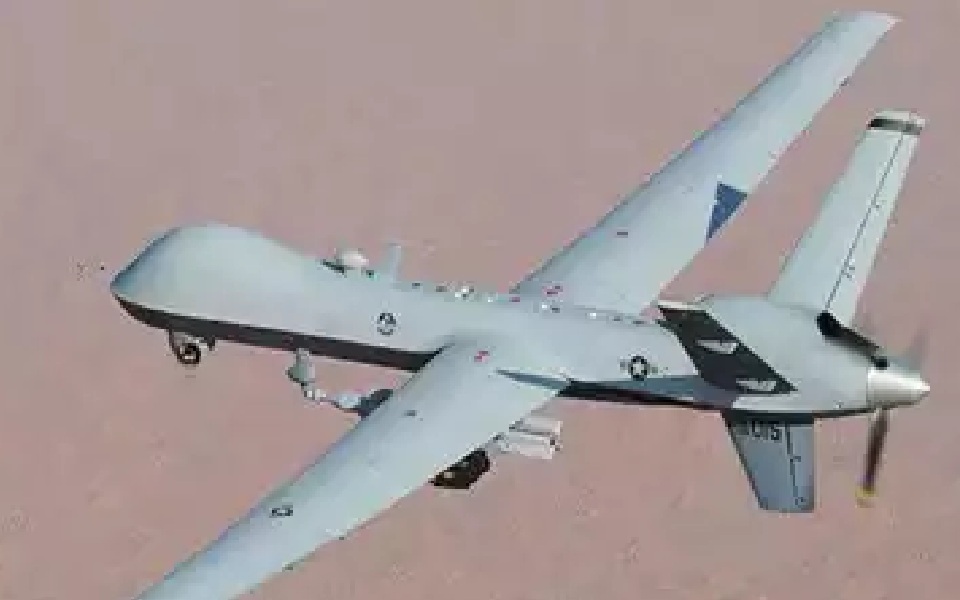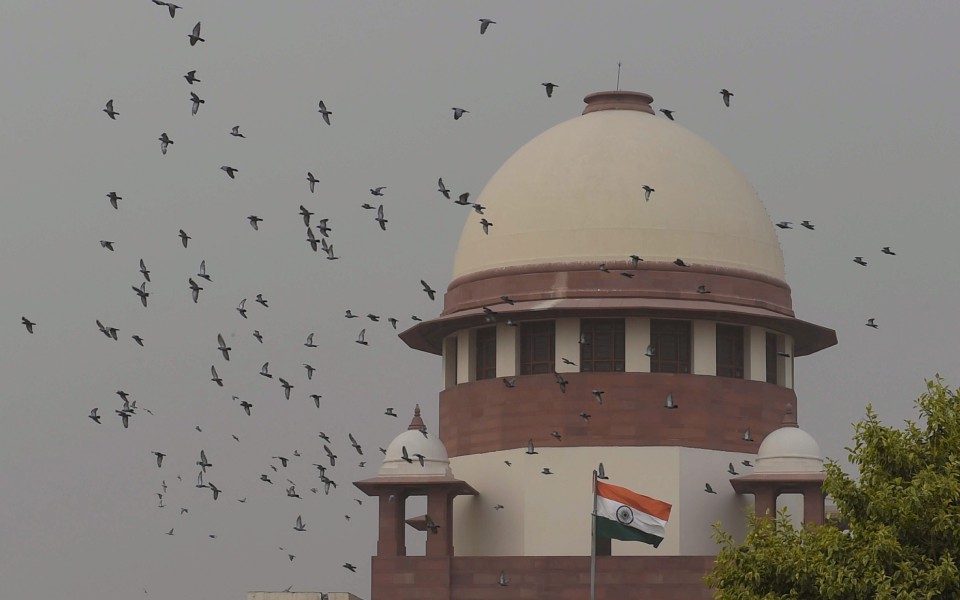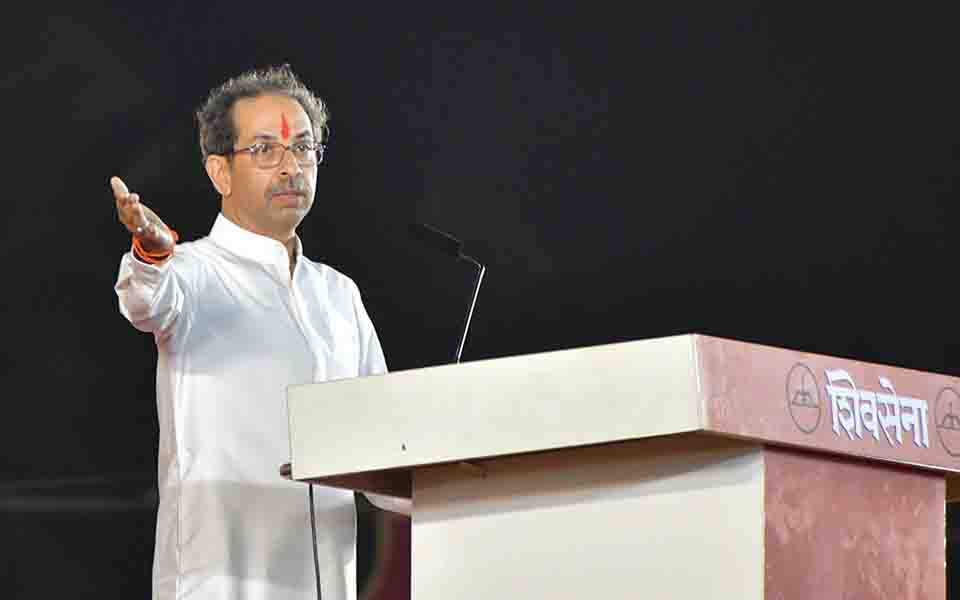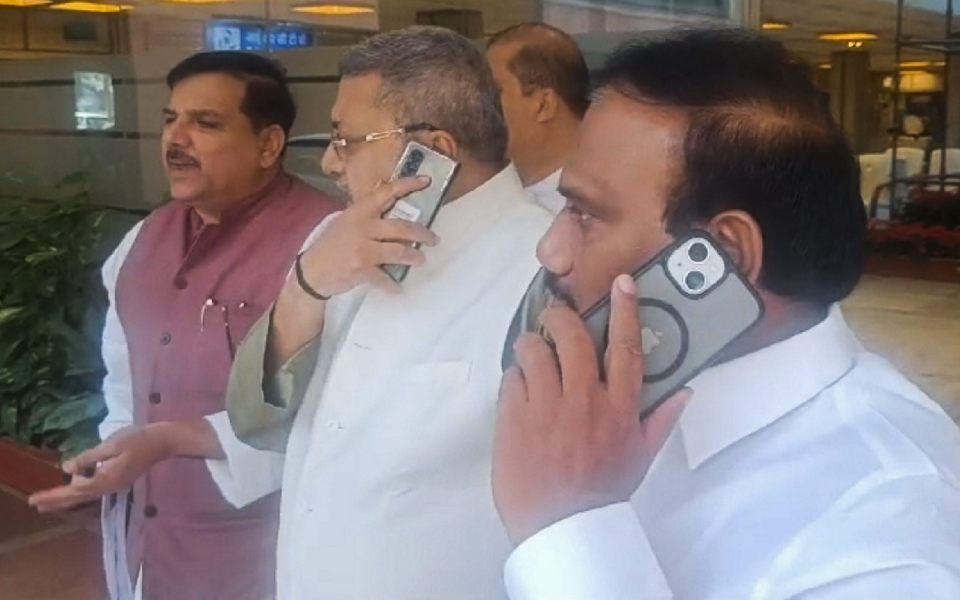New Delhi, Jun 25: India is yet to finalise the cost and specific terms of purchase of 31 MQ-9B long endurance drones from the US and it will examine the "best price" offered by the manufacturer to other nations before concluding the procurement, the defence ministry said on Sunday while trashing reports in a section of social media on the price as well as the acquisition process.
It said the Acceptance of Necessity (AoN) accorded to the procurement by the Defence Acquisition Council (DAC) noted the estimated cost of USD 3,072 million (one million=10 lakh) as provided by the US government, adding the price will be negotiated once policy approval from Washington is received.
The DAC headed by Defence Minister Rajnath Singh on June 15 accorded the AoN or initial approval for acquisition of 31 MQ-9B High Altitude Long Endurance (HALE) drones from the US under the foreign military sale (FMS) route.
The AoN included the number of unmanned aerial vehicles to be procured along with associated equipment.
India and the US firmed up the drone deal during Prime Minister Narendra Modi's high-profile visit to Washington.
The defence ministry, in a statement, described the reports in social media on the price and the terms of purchase relating to the drones as "speculative" and said they are being spread with "ulterior motives".
"These are uncalled for, have ulterior motives and aimed at derailing the due acquisition process. The price and other terms and conditions of the purchase are yet to be finalised and subject to negotiations," it said.
"In this regard, all are requested not to spread fake news/misinformation which can have serious impact on the morale of the armed forces and adversely impact the acquisition process," it added.
The Sea Guardian drones are being procured for the three services as they can carry out a variety of roles, including maritime surveillance, anti-submarine warfare and over-the-horizon targeting among others.
While the Navy will get 15 Sea Guardian drones, the Indian Air Force and the Army will each get eight Sky Guardian drones.
The ministry said it will compare the acquisition cost of the drones with the "best price" offered by manufacturer General Atomics (GA) to other countries and that the procurement process would be completed as per the laid down procedure.
"The AoN noted the estimated cost of 3,072 million US dollars provided by the US government. However, price will be negotiated once policy approval of the US Government is received," it said.
"The Ministry of Defence (MoD) will compare the acquisition cost with the best price offered by General Atomics (GA) to other countries. The procurement is in progress and would be completed as per the laid down procedure," it added.
The ministry said under the foreign military sale (FMS) route, a Letter of Request (LOR) would be sent to the US government where tri-services requirements, details of equipment and terms of the procurement would be included.
"Based on the LOR, the US government and MoD will finalise the Letter of Offer and Acceptance (LOA) where details of equipment and terms of the procurement would be negotiated and finalised in accordance with the FMS programme and the price and terms offered by the US government and GA to other countries," it said.
The high-altitude long-endurance (HALE) drones are capable of remaining airborne for over 35 hours and can carry four Hellfire missiles and around 450 kg of bombs.
In 2020, the Indian Navy had taken on lease two MQ-9B Sea Guardian drones from General Atomics for a period of one year for surveillance in the Indian Ocean. The lease period has been extended subsequently.
Let the Truth be known. If you read VB and like VB, please be a VB Supporter and Help us deliver the Truth to one and all.
New Delhi, Nov 5: Supreme Court judges B V Nagarathna and Sudhanshu Dhulia on Tuesday took exception to Chief Justice DY Chandrachud's remark during his judgement related to private properties that the Justice Krishna Iyer doctrine did a "disservice" to the broad and flexible spirit of the Constitution.
While Justice Nagarathna said the CJI's observations are unwarranted and unjustified, Justice Dhulia strong disapproved the remarks and said the criticism is harsh, and could have been avoided.
The nine-judge bench comprising Chief Justice D Y Chandrachud and justices Hrishikesh Roy, B V Nagarathna, Sudhanshu Dhulia, J B Pardiwala, Manoj Misra, Rajesh Bindal, Satish Chandra Sharma and Augustine George Masih pronounced the verdict.
The majority verdict pronounced by the CJI overruled Justice Iyer's previous ruling that all privately owned resources can be acquired by the State for distribution under Article 39(b) of the Constitution.
The CJI wrote for himself and six other judges on the bench which decided the vexed legal question on whether private properties can be considered "material resources of the community" under Article 39(b) and taken over by State authorities for distribution to subserve the "common good".
Justice Nagarathna partially disagreed with the majority judgement penned by the CJI, while Justice Dhulia dissented on all aspects.
In a separate 130-page verdict, Justice Nagarathna quoted Chandrachud saying, "Thus, the role of this court is not to lay down economic policy, but to facilitate this intent of the framers to lay down the foundation for an 'economic democracy'. The Krishna Iyer doctrine does a disservice to the broad and flexible spirit of the Constitution."
Justice Nagarathna said merely because of the paradigm shift in the economic policies of the State, cannot result in labelling the former judges of this court as doing a "disservice" to the Constitution.
"It is a matter of concern as to how the judicial brethren of posterity view the judgments of the brethren of the past, possibly by losing sight of the times in which the latter discharged their duties and the socio-economic policies that were pursued by the State and formed part of the constitutional culture during those times.
"Merely because of the paradigm shift in the economic policies of the State to globalisation and liberalisation and privatisation, compendiously called the 'Reforms of 1991', which continue to do so till date, cannot result in branding the judges of this Court of the yesteryears “as doing a disservice to the constitution," Justice Nagarathna said.
Justice Dhulia said the Krishna Iyer Doctrine or O Chinnappa Reddy Doctrine is familiar to all who have anything to do with law or life and based on strong humanist principles of fairness and equity.
"I must also record here my strong disapproval on the remarks made on the Krishna Iyer Doctrine as it is called. This criticism is harsh, and could have been avoided...
"It is a doctrine which has illuminated our path in dark times. The long body of their judgment is not just a reflection of their perspicacious intellect but more importantly of their empathy for the people, as human being was at the centre of their judicial philosophy," Justice Dhulia wrote.
Justice Nagarathna, who is set to take over as India's first woman CJI in 2027, said such observations emanating from this court creates a concavity in the manner of voicing opinions on judgments of the past and their authors by holding them doing a disservice to the Constitution.
She said such observations imply that they may not have been true to their oath of office as a Judge of the Supreme Court.
"I may say that with passage of decades after the enforcement of the Constitution and on India becoming a Republic, the transformative impact of the Constitution has been deep and pervasive not only on governance in the country, whether at the central, state or local level but its impact on the Indian judiciary is also a significant aspect of Indian constitutional development.
"As a result, the basic features of the Constitution including the Preamble, Fundamental Rights, Directive Principles of State Policy, Separation of Powers, Judicial Review and Independence of the judiciary have impacted both governance as well as the judiciary," she wrote.
The top court judge said bearing in mind the goals of the constitution, it is the obligation on the part of this court to consider the correctness of such legislation in light of the vision of the framers of the Constitution as well as the transformative nature of the Indian Constitution and the intent of the policy makers and the law.
"It is in the above background that the Judges of this court have been deciding constitutional issues over the decades. Of course, no particular line of thinking is static and changes are brought about by the State by bearing in mind the exigencies of the times and global impact particularly on the Indian economy.
"Such attempts to create an environment suitable to the changing times have to be also appreciated by the judiciary, by suitably interpreting the Constitution and the laws. But by there being a paradigm shift in the economy of this country, akin to Perestroika in the erstwhile USSR, in my view, neither the judgments of the previous decades nor the judges who decided those cases can be said to have done a disservice to the Constitution," Justice Nagarathna said.





